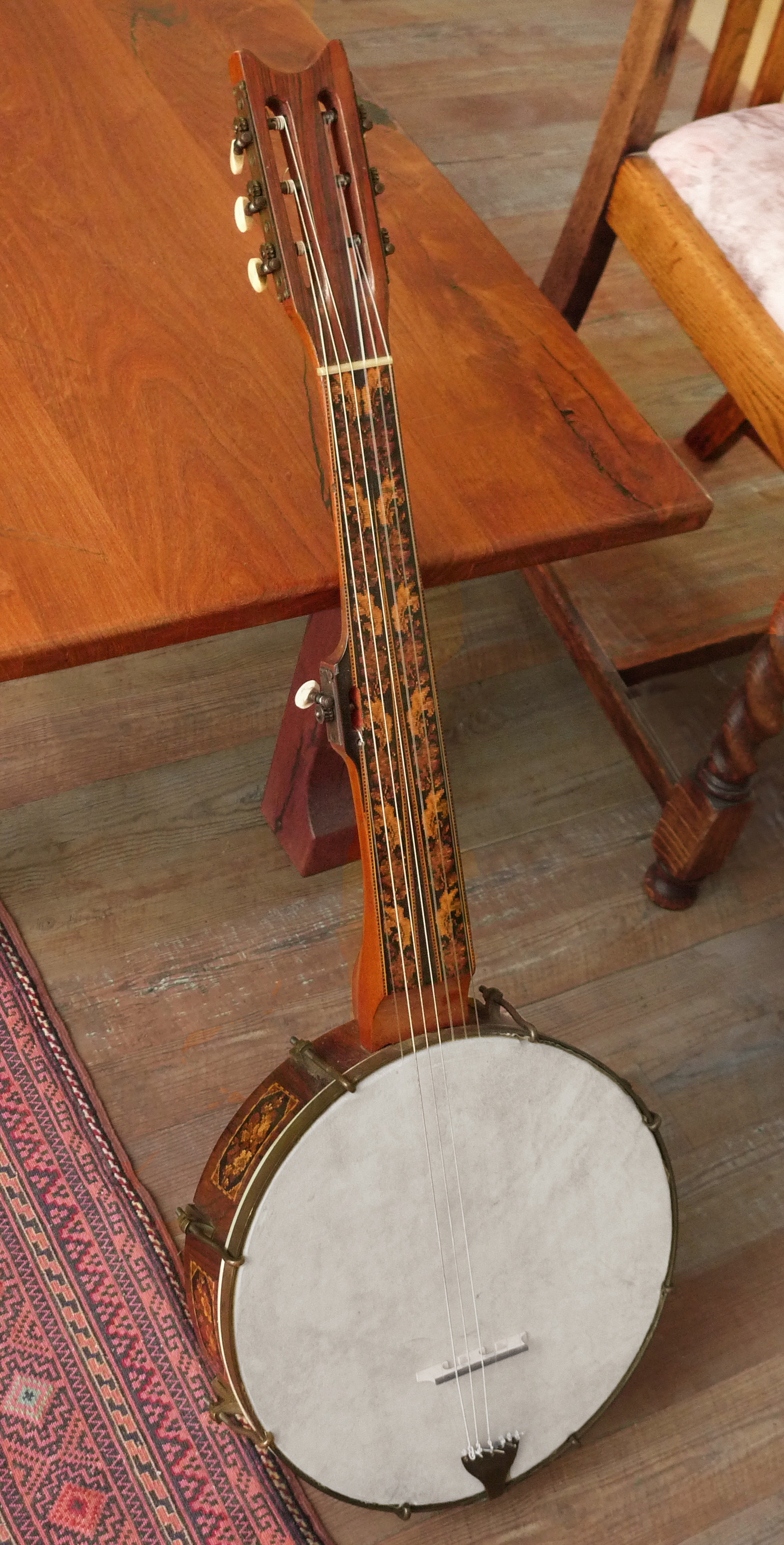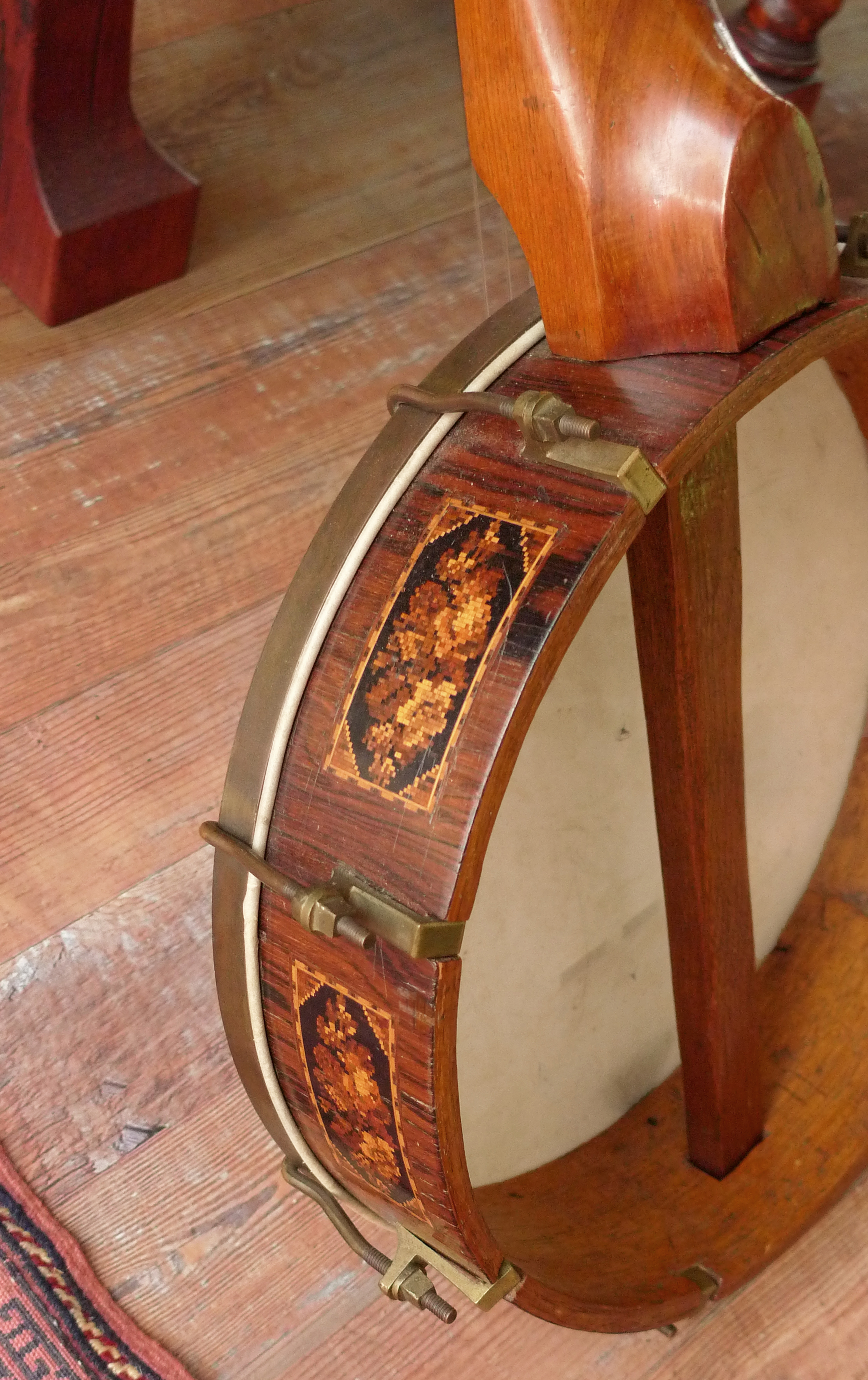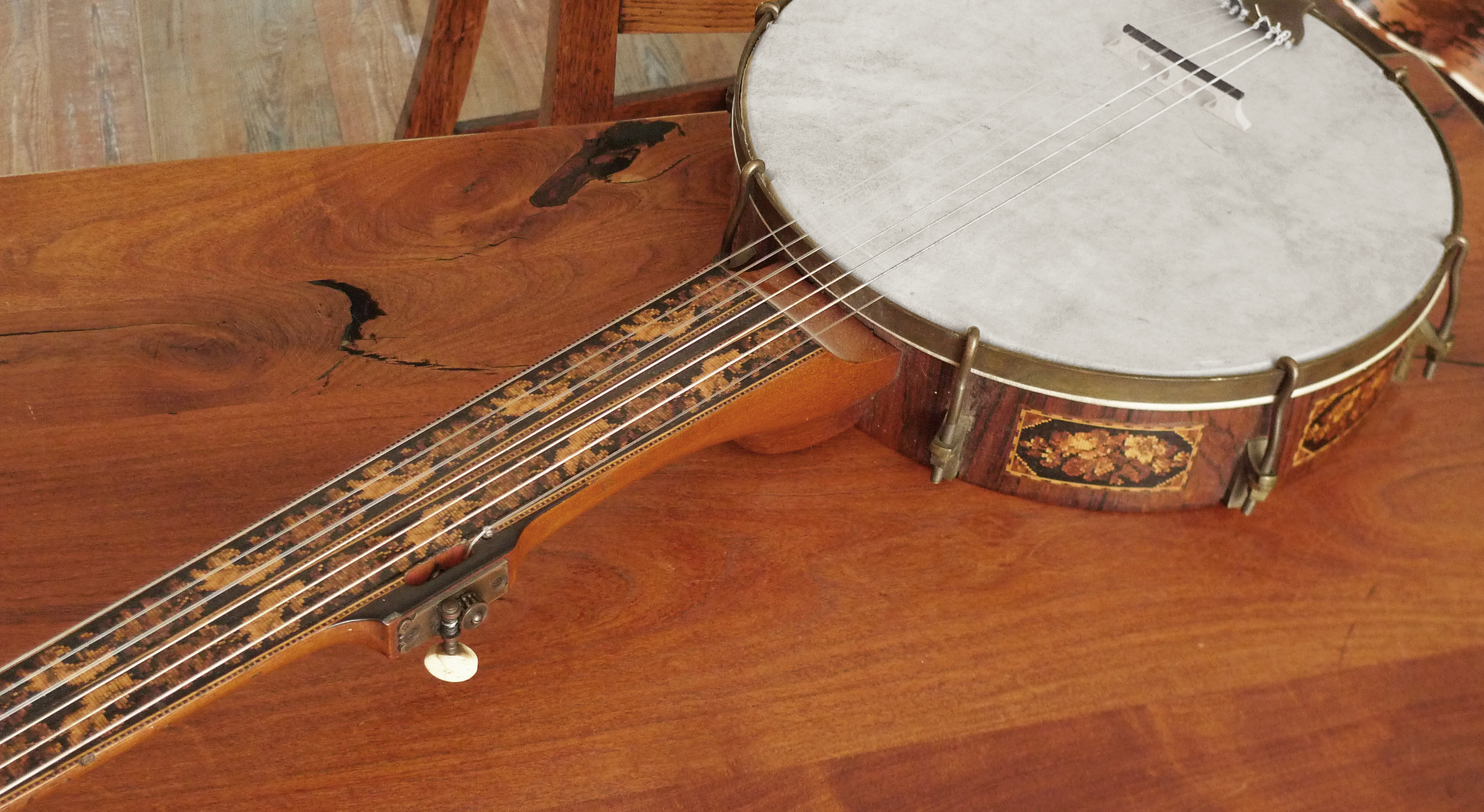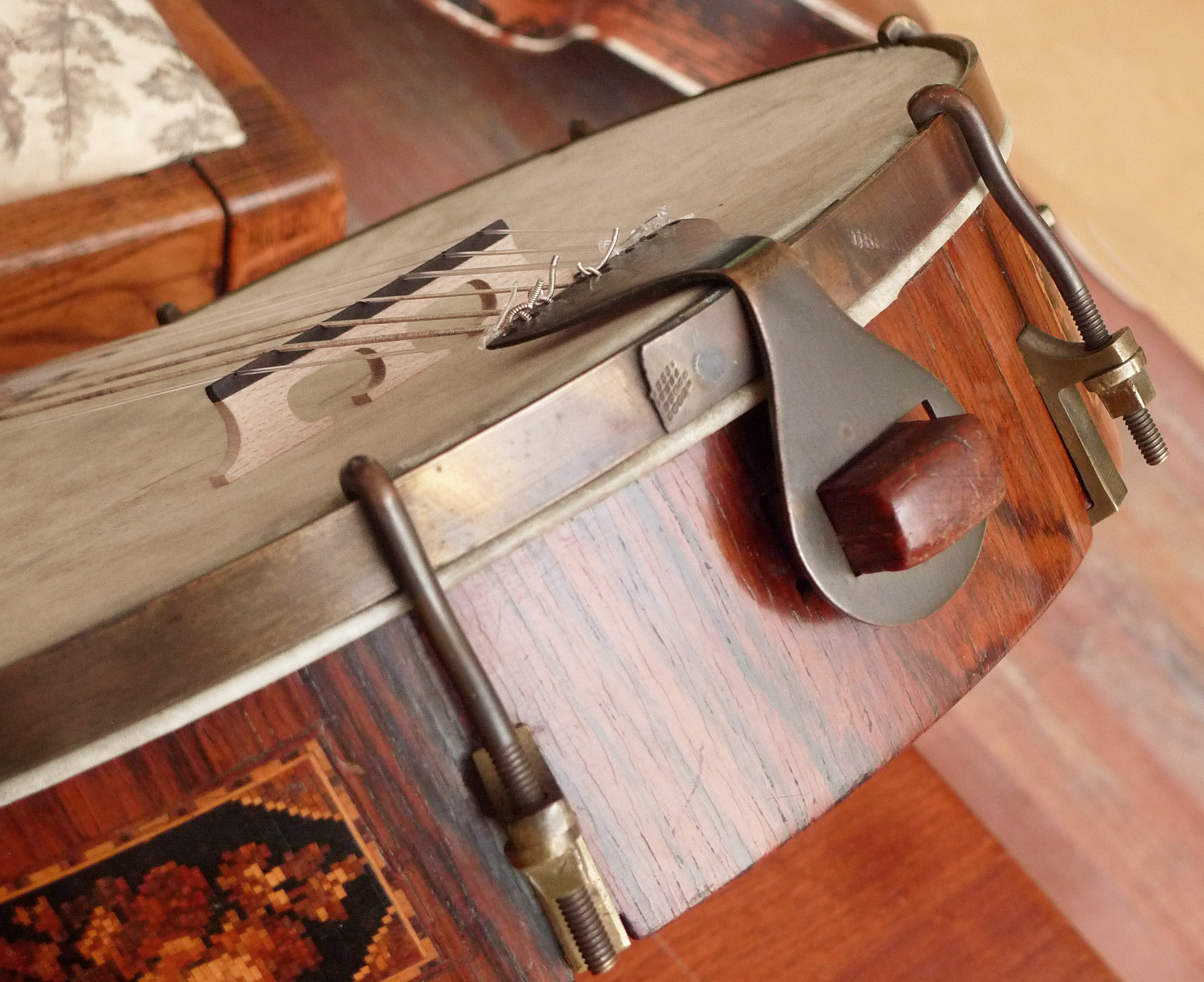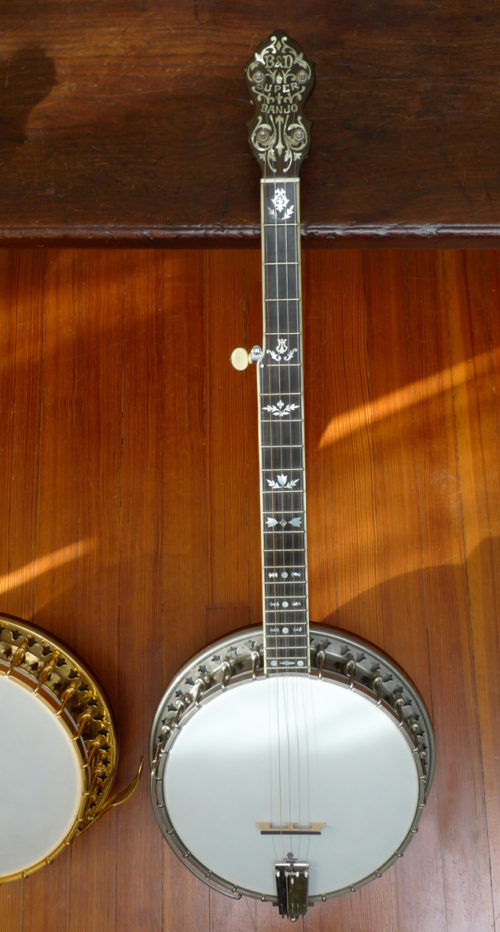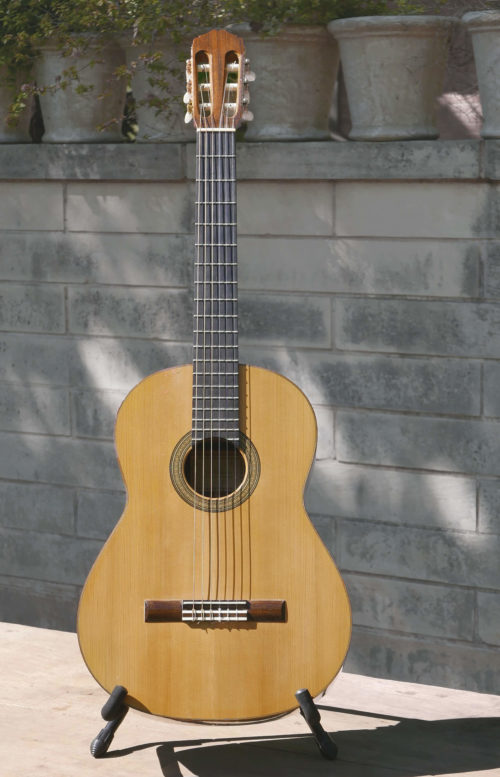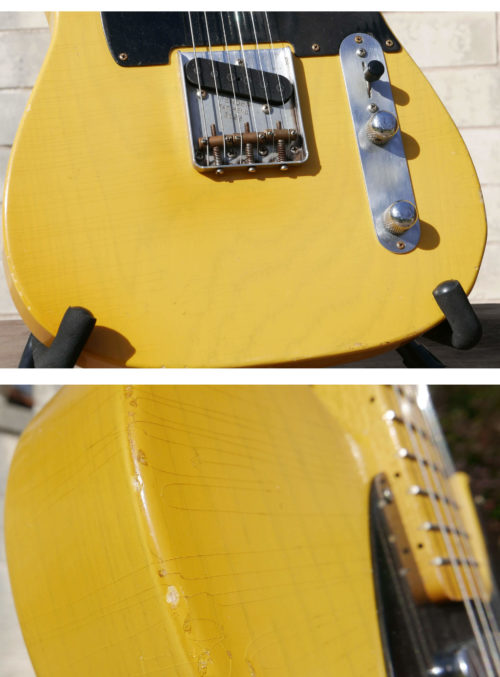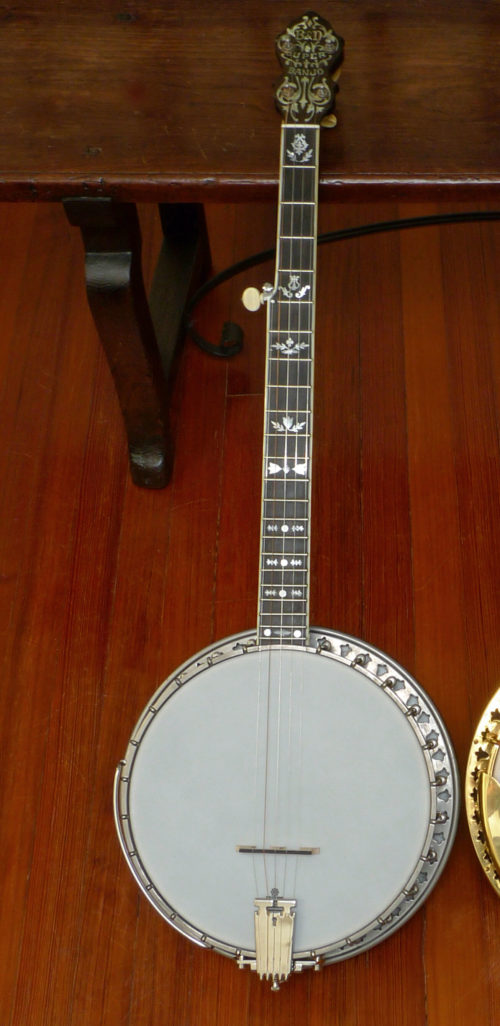A rare and amazingly original English, Tunbridge ware fretless 7 string banjo. Circa 1850-60. This instrument is 100% original, and even the tailpiece is the original brass tailpiece. This banjo is also rare in that it has original geared tuning machines, not pegs like other examples from the period.
The Tunbridge ware banjo is almost impossible to find in this condition and stage of originality. And Tunbridge’s are rare, period. The history? After Joel Sweeney – born to a farming family in Appomattox, Virginia and claimed to have learned to play the banjo from local African population, and the earliest known person to have played the banjo on stage – embarked on a European tour that included stops in London and Edinburgh. He played there for several months, and raised awareness of the instrument in England. As in the U.S., banjos began to be made by local craftsmen – they were still hand made and came in all shapes and sizes, with 5, 6, 7 and even 12 strings, and with one or more drone strings, sometimes on both sides of the neck. Only a few, best ones, such as this instrument, had an amazing amount of work put into them, none more so than those made by a very few firms centered around Tunbridge Wells in Kent, where the local craftsmen specialized in producing a particular form of Treen ware, made from up to 180 different colored woods. Holly, cherry, plum, yew, sycamore, and even imported lignum vitae were all used. The technique was to bind short lengths together and glue them into bundles so when viewed end on, a pattern or picture could be seen.
Instrument length: 34 inches. With a 12 inch pot. Eight tensioners and shoes, all original. Original, rare circa 1850 German brass machine tuners (one bent shaft– but still operates perfectly). Original brass tailpiece. Fingerboard, and pot, consisting of inlaid woods as geometric patterns. All the inlays are intact.
$2450.
In a modern case.
